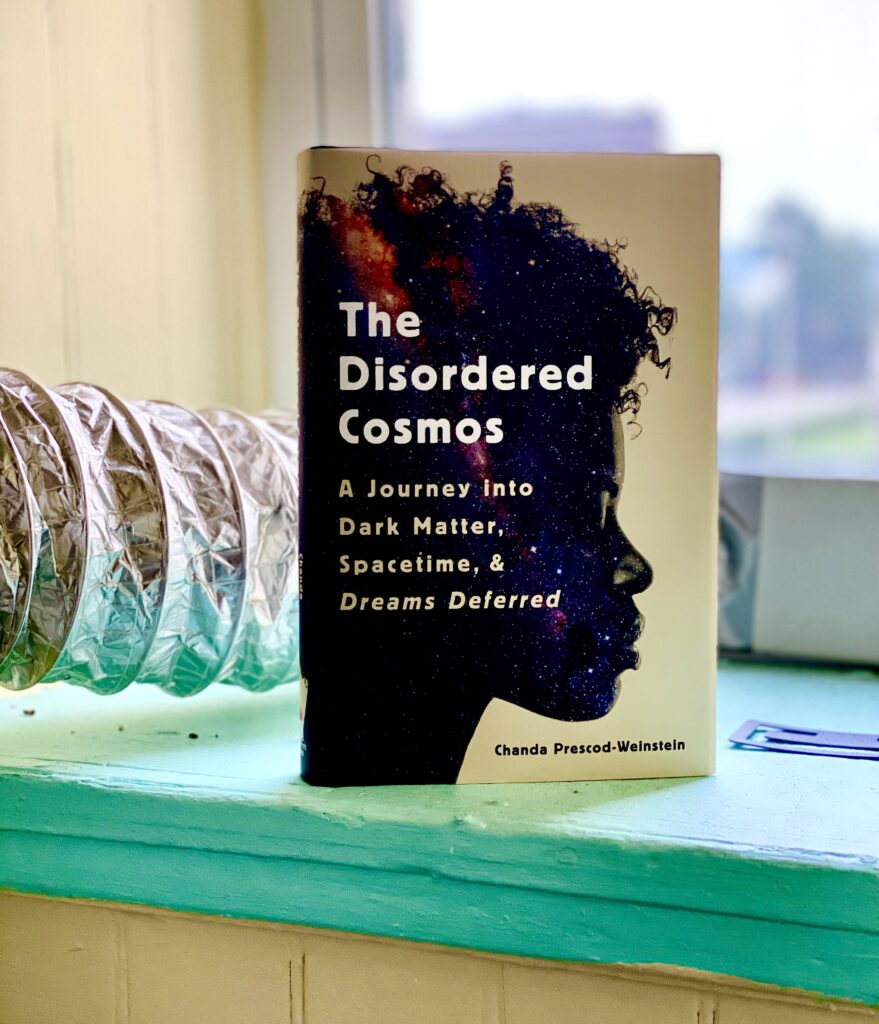
Theoretical physics for the lay reader, critique of the institutional and social doing of science, and radical analysis, mixed with memoir. The author is a prof of physics and astronomy who grew up immersed in radical grassroots politics in a Black working-class family in Los Angeles. The book starts with a focus on explaining some of the key Big Ideas in physics, astronomy, and where the two overlap, and does so quite effectively – don’t be scared off by the subject matter! Then it shifts its focus to the work of science and the author’s experience of it as a queer Black agender woman with radical political commitments, and to the social world of which the work of science is one part.
The book is…I was originally going to say the first that I’ve ever read that brings together two quite different strands in my reading life, but I think it’s more accurate to say it’s the first I’ve read in quite some time, and perhaps the one that is the most organically and earnestly committed to both. One of those strands is about critical and radical politics, and it is the much more obvious of the two from looking at a lot of the nonfiction I’ve read in the last 25 years. But the other strand was particularly part of what I read before that, in an intermittent way from my mid-teens until just before whatever social and personal alchemy politicized me as an undergraduate biochemistry student. And that older strand featured books about math or science, often (like this one) aimed at a lay audience but (also like this one) not afraid of making that audience work a little. It would take more reflection than I care to give it at this moment to fully articulate the connections, but I think that older reading practice, my politicization, and my more recent nonfiction consumption are united through an interest in learning how to think critically and incisively, in figuring out how we know the world, and then in deploying those practices to actually learn about the world. I’m not sure what 16 year-old me would’ve made of this book, but 21 year-old me would’ve eaten it right up, and [coughcough] year-old me did likewise. A fair chunk of what I read back then was about physics, too, though in school it was always my weakest science. And I think maybe the lessons that physics teaches about how the world is way weirder and way more complex than we grow up thinking, and yet is still in important ways knowable, also fed into the sensibility that I brought to later kinds of learnings about the social world.
I think another key thing that I take from this book (that certainly would not have been the case at 21) is the lessons that its example has to teach about writing. This is, like I said, a book that communicates about Big Ideas in physics to an imagined reader who has no background in physics, and communicates important radical ideas about the social world to an imagined reader that may not have had any prior exposure to those either. And it does it well. And by that I mean, yes, it is clear and it explains things carefully, but it also seems to have a certain respect for the reader that I sometimes think is lacking in writing that emphasizes accessibility. That is, it works hard to avoid being gratuitously complex, in the way that scholarly writing sometimes is, but it also doesn’t shy away when the ideas really are difficult. As someone with my own quiet, odd little practice of intellectual work and writing that sometimes draws on scholarly or other less-than-accessible work but that is not done in an academic context or with the aim of being read primarily by scholars, it’s always a treat and a lesson to read something that does a good job of this.
Anyway, I would recommend that anyone who is even vaguely interested in what I’ve described give this a try. If you know a thing or two about the different kinds of material it brings together, you can just savour it, and if you don’t, well, you can let it shake up your assumptions about the world on all sorts of different levels.
Originally posted by Scott on Goodreads.